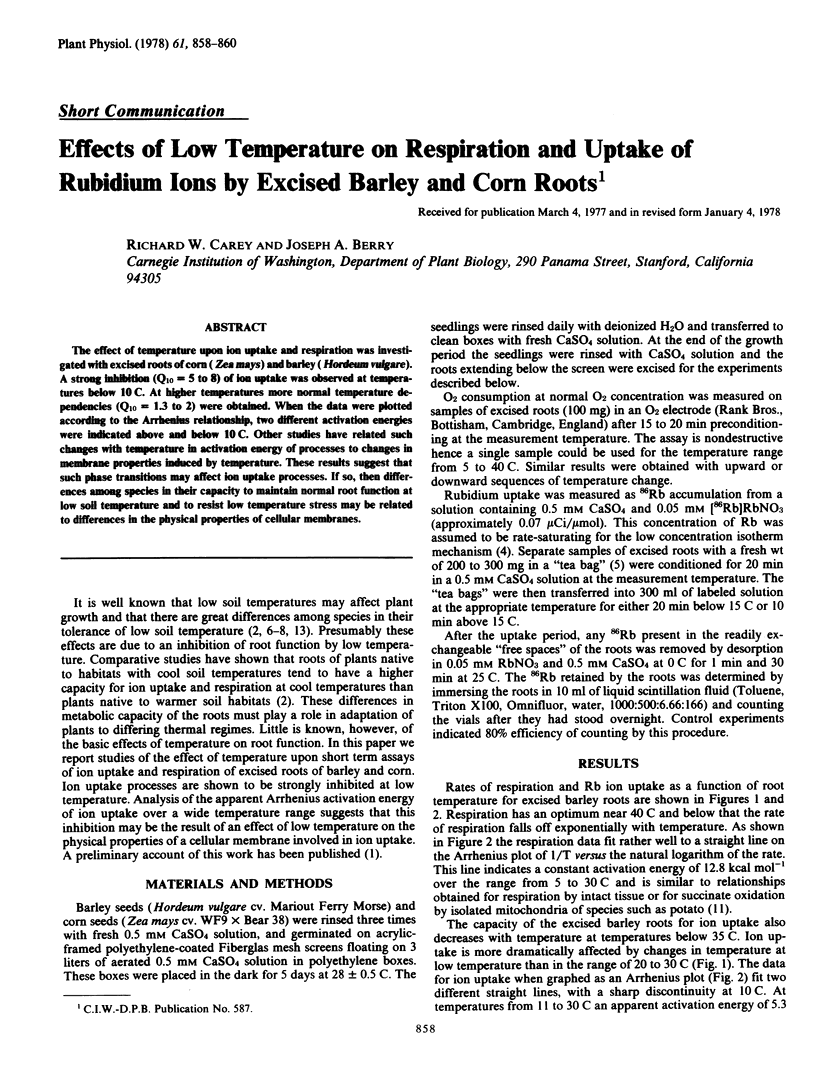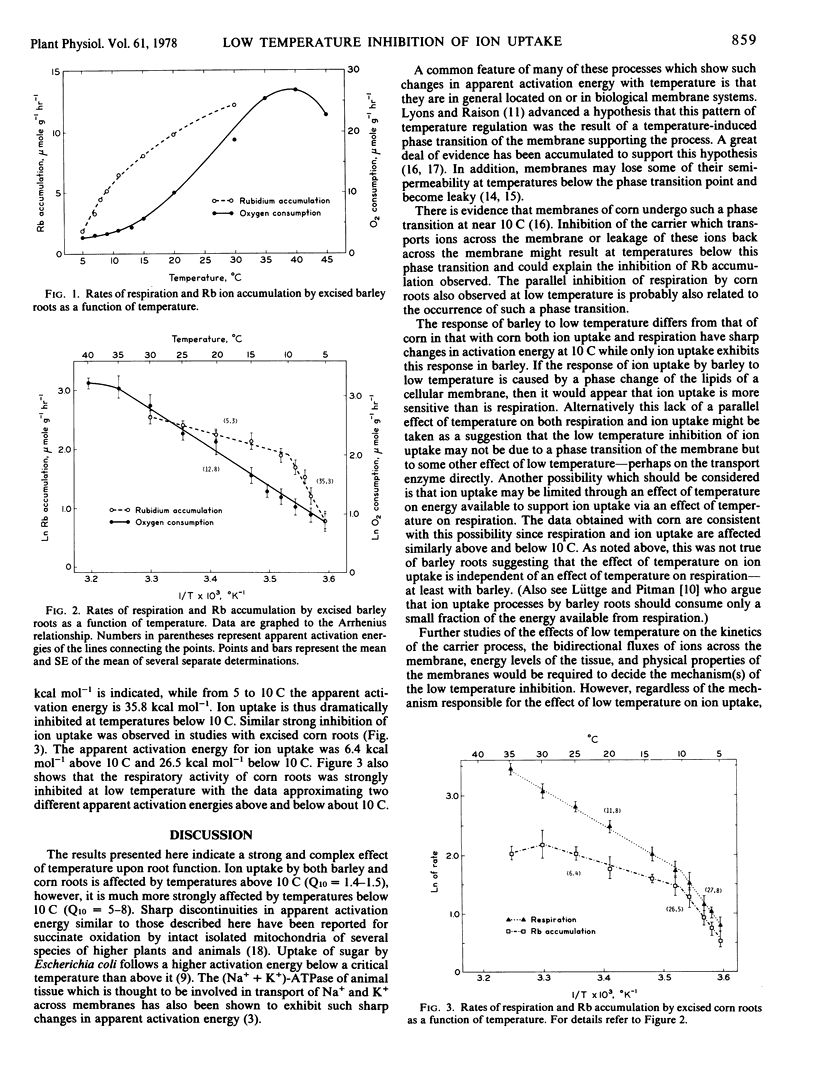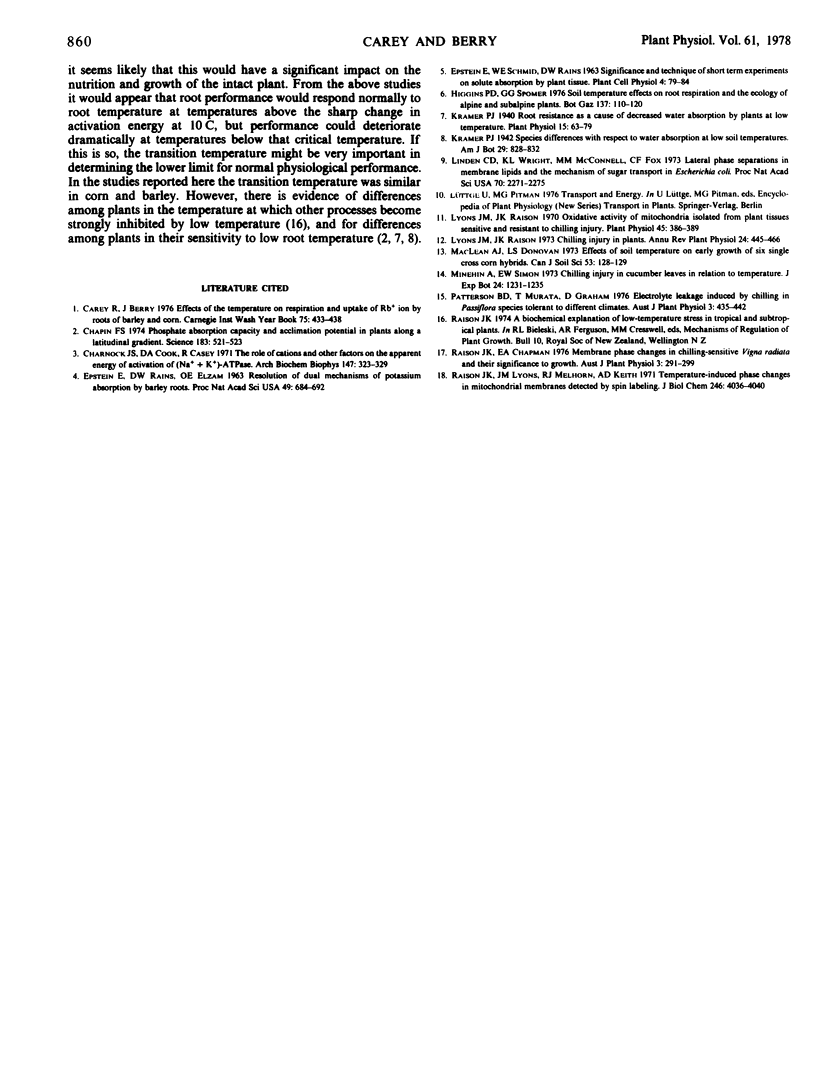Abstract
The effect of temperature upon ion uptake and respiration was investigated with excised roots of corn (Zea mays) and barley (Hordeum vulgare). A strong inhibition (Q10 = 5 to 8) of ion uptake was observed at temperatures below 10 C. At higher temperatures more normal temperature dependencies (Q10 = 1.3 to 2) were obtained. When the data were plotted according to the Arrhenius relationship, two different activation energies were indicated above and below 10 C. Other studies have related such changes with temperature in activation energy of processes to changes in membrane properties induced by temperature. These results suggest that such phase transitions may affect ion uptake processes. If so, then differences among species in their capacity to maintain normal root function at low soil temperature and to resist low temperature stress may be related to differences in the physical properties of cellular membranes.
Full text
PDF


Selected References
These references are in PubMed. This may not be the complete list of references from this article.
- Chapin F. S., 3rd Phosphate Absorption Capacity and Acclimation Potential in Plants along a Latitudinal Gradient. Science. 1974 Feb 8;183(4124):521–523. doi: 10.1126/science.183.4124.521. [DOI] [PubMed] [Google Scholar]
- Charnock J. S., Cook D. A., Casey R. The role of cations and other factors on the apparent energy of activation of (Na + + K + )-ATPase. Arch Biochem Biophys. 1971 Nov;147(1):323–329. doi: 10.1016/0003-9861(71)90340-7. [DOI] [PubMed] [Google Scholar]
- Epstein E., Rains D. W., Elzam O. E. RESOLUTION OF DUAL MECHANISMS OF POTASSIUM ABSORPTION BY BARLEY ROOTS. Proc Natl Acad Sci U S A. 1963 May;49(5):684–692. doi: 10.1073/pnas.49.5.684. [DOI] [PMC free article] [PubMed] [Google Scholar]
- Kramer P. J. ROOT RESISTANCE AS A CAUSE OF DECREASED WATER ABSORPTION BY PLANTS AT LOW TEMPERATURES. Plant Physiol. 1940 Jan;15(1):63–79. doi: 10.1104/pp.15.1.63. [DOI] [PMC free article] [PubMed] [Google Scholar]
- Linden C. D., Wright K. L., McConnell H. M., Fox C. F. Lateral phase separations in membrane lipids and the mechanism of sugar transport in Escherichia coli. Proc Natl Acad Sci U S A. 1973 Aug;70(8):2271–2275. doi: 10.1073/pnas.70.8.2271. [DOI] [PMC free article] [PubMed] [Google Scholar]
- Lyons J. M., Raison J. K. Oxidative activity of mitochondria isolated from plant tissues sensitive and resistant to chilling injury. Plant Physiol. 1970 Apr;45(4):386–389. doi: 10.1104/pp.45.4.386. [DOI] [PMC free article] [PubMed] [Google Scholar]
- Raison J. K., Lyons J. M., Mehlhorn R. J., Keith A. D. Temperature-induced phase changes in mitochondrial membranes detected by spin labeling. J Biol Chem. 1971 Jun 25;246(12):4036–4040. [PubMed] [Google Scholar]


